Английский язык для специальных и академических целей: Международные отношения и зарубежное регионоведение. Часть 1 - [11]
does not exist as an independent sphere of activity.
8. The Scotland Act 1998 __________________ the power to the Scottish Parliament to make
primary legislation on all matters not reserved to the UK Parliament, as long as these comply with EU requirements and European human rights law.
9. Unlike the Battle of Midway, which historians regard as a pivotal moment in World War II, historians regard the Battle of Debrecen as of _________ importance.
10. A __________ politician is economical with the truth, a great politician is praised for telling
the truth.
11. Company executives achieved __________ success at high-speed team building events.
12. Cultures can achieve __________ either by wanting little and producing little or wanting
much and producing much.
13. At least compared to Western Europe, Minsk was still __________ of Old Russia.
14. Failure to ratify the Treaty signalled the European electorate's __________ with the EU and
the process of enlargement.
1. In what European countries are there regions striving for independence? What makes them do it?
2. What, in your opinion, determined the outcome of the Scottish independence referendum?
DON'T LEAVE US THIS WAY
Why we hope the people of Scotland will vote to stay in the union
Jul 12th 2014 | the Economist http://www.economist.com/news/leaders/21606832-why-we-hope-people-scotland-will-vote-stay-union-dont-leave-us-way
BRITAIN does not feel like a nation on the verge of cracking up. Many have clutched patriotic flags and wept this summer — but most of them were fans of the England football team, distressed by its rapid exit from the World Cup, not activists demonstrating for and against the breakup of their country. Yet a 307-year-old union, which once ruled a third of humanity and still serves as a role-model to many, could be on the verge of dissolution, because the people of Scotland will vote on independence in a referendum on September 18th.
Opinion polls suggest the Scots will decide against leaving, but it is the nationalists who have fire in their bellies, and Alex Salmond, the leader of the Scottish National Party (SNP), is a strong finisher. Even a narrow victory for the status quo would be the biggest blow to the United Kingdom since 1922, when the Irish Free State was born. The campaign has been a bad-tempered one, marked by growing Scottish anger at English complacency and indifference while English resentment of Scottish whingeing and freeloading has risen: only a strong vote for the union will bury this issue.
If the Scots vote to leave, they should of course be allowed to, with Britain's blessing. A desire for self-determination is a strong basis for a claim to nationhood, and there is no reason to think that an independent Scotland would be a disaster, any more than an independent Ireland has been.
But The Economist, itself a product of the Caledonian liberalism of Adam Smith and David Hume, hopes the Scots will decide to stay. That is partly because we believe that a break-up would benefit nobody: on most measures the certain costs for people on both sides of the border far outweigh the uncertain gains. But it is also because much would be lost. Despite the occasional appearance of muddle, there is a point to the union, and one about which liberals should feel passionate.
Strong arguments are needed to justify a step as big as breaking up a nation. Scottish nationalists argue that an independent Scotland would be more prosperous and more democratic.
On economics, the nationalists say that Scots will be £1,000 a year better-off per head if they go it alone. That number, however, is based on implausible assumptions about the oil price, Scotland's debt burden, demography and productivity. The British government's estimate that Scots would be £1,400 a year better off per head if they stay in is based on more realistic assumptions. Scotland's population is older and sicker than the British average, and productivity 11% lower than that of the rest of Britain. As a result, the state spends around £1,200 more per head on Scots than on the average Briton. Depending on what happens to the oil price, North Sea oil could more or less cover those costs in the short term, but the oil is running out.
It is, of course, possible that independence would cure Scotland's entitlement culture>14> and revive its entrepreneurial side. If either of its two dominant parties — the SNP and Labour — were disciples of Adam Smith that would be plausible. But their statist philosophies are more likely to drive Edinburgh's fund managers, Aberdeen's oil-services engineers and other talented Scots south. Independence would also impose one-off costs: a new Scottish state would have to set up an army, a welfare system, a currency and much else.
The argument that an independent Scotland would be more democratic is a stronger one, for Scotland and England have grown apart. Two generations ago, there were nearly as many Conservative MPs as Labour ones in Scotland, but the Scots have not forgiven the Tories for the impact of Thatcherism on their heavily industrial economy. Nationalist protesters recently donned panda outfits to remind David Cameron, the Conservative prime minister, that there are more pandas in
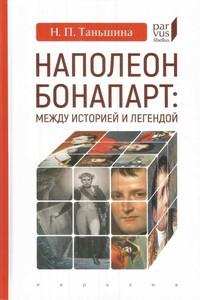
Наполеон притягивает и отталкивает, завораживает и вызывает неприятие, но никого не оставляет равнодушным. В 2019 году исполнилось 250 лет со дня рождения Наполеона Бонапарта, и его имя, уже при жизни превратившееся в легенду, стало не просто мифом, но национальным, точнее, интернациональным брендом, фирменным знаком. В свое время знаменитый писатель и поэт Виктор Гюго, отец которого был наполеоновским генералом, писал, что французы продолжают то показывать, то прятать Наполеона, не в силах прийти к окончательному мнению, и эти слова не потеряли своей актуальности и сегодня.
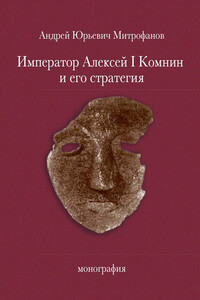
Монография доктора исторических наук Андрея Юрьевича Митрофанова рассматривает военно-политическую обстановку, сложившуюся вокруг византийской империи накануне захвата власти Алексеем Комнином в 1081 году, и исследует основные военные кампании этого императора, тактику и вооружение его армии. выводы относительно характера военно-политической стратегии Алексея Комнина автор делает, опираясь на известный памятник византийской исторической литературы – «Алексиаду» Анны Комниной, а также «Анналы» Иоанна Зонары, «Стратегикон» Катакалона Кекавмена, латинские и сельджукские исторические сочинения. В работе приводятся новые доказательства монгольского происхождения династии великих Сельджукидов и новые аргументы в пользу радикального изменения тактики варяжской гвардии в эпоху Алексея Комнина, рассматриваются процессы вестернизации византийской армии накануне Первого Крестового похода.
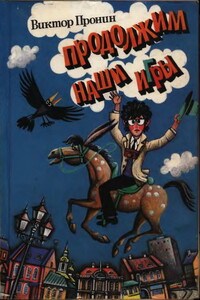
Виктор Пронин пишет о героях, которые решают острые нравственные проблемы. В конфликтных ситуациях им приходится делать выбор между добром и злом, отстаивать свои убеждения или изменять им — тогда человек неизбежно теряет многое.
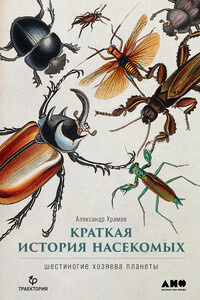
«Любая история, в том числе история развития жизни на Земле, – это замысловатое переплетение причин и следствий. Убери что-то одно, и все остальное изменится до неузнаваемости» – с этих слов и знаменитого примера с бабочкой из рассказа Рэя Брэдбери палеоэнтомолог Александр Храмов начинает свой удивительный рассказ о шестиногих хозяевах планеты. Мы отмахиваемся от мух и комаров, сражаемся с тараканами, обходим стороной муравейники, что уж говорить о вшах! Только не будь вшей, человек остался бы волосатым, как шимпанзе.
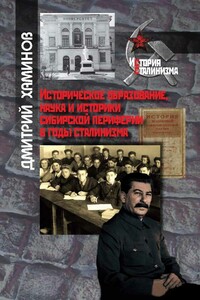
Настоящая монография посвящена изучению системы исторического образования и исторической науки в рамках сибирского научно-образовательного комплекса второй половины 1920-х – первой половины 1950-х гг. Период сталинизма в истории нашей страны характеризуется определенной дихотомией. С одной стороны, это время диктатуры коммунистической партии во всех сферах жизни советского общества, политических репрессий и идеологических кампаний. С другой стороны, именно в эти годы были заложены базовые институциональные основы развития исторического образования, исторической науки, принципов взаимоотношения исторического сообщества с государством, которые определили это развитие на десятилетия вперед, в том числе сохранившись во многих чертах и до сегодняшнего времени.
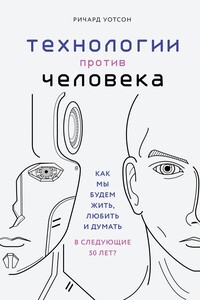
Эксперты пророчат, что следующие 50 лет будут определяться взаимоотношениями людей и технологий. Грядущие изобретения, несомненно, изменят нашу жизнь, вопрос состоит в том, до какой степени? Чего мы ждем от новых технологий и что хотим получить с их помощью? Как они изменят сферу медиа, экономику, здравоохранение, образование и нашу повседневную жизнь в целом? Ричард Уотсон призывает задуматься о современном обществе и представить, какой мир мы хотим создать в будущем. Он доступно и интересно исследует возможное влияние технологий на все сферы нашей жизни.